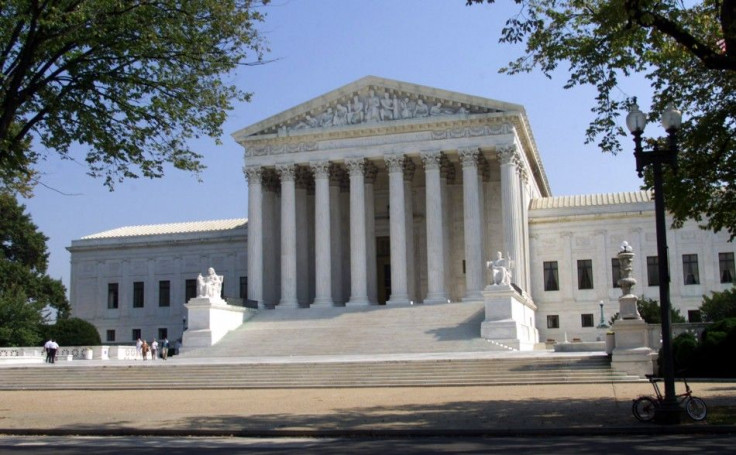Stolen Valor Act Supreme Court Decision Goes Unnoticed Amid Health Care Ruling

The Stolen Valor Act decision is the Rodney Dangerfield of the day's Supreme Court rulings -- it's not getting any respect or attention amid the flurry of that other decision announced Thursday, when the court upheld the Affordable Care Act.
In a 6-3 decision, the U.S. Supreme Court struck down the Stolen Valor Act, which was signed into law in 2006 by then-President George W. Bush. The act makes it a crime to falsely claim receipt of military decorations or medals and provides an enhanced penalty if the Congressional Medal of Honor is involved.
Violators of the act faces a prison term of up to six months, with that penalty increased to up to a year in prison if they falsely claimed to have been given the Congressional Medal of Honor.
California resident and elected official Xavier Alvarez did just that -- he lied about receiving the Congressional Medal of Honor during a 2007 meeting of the Three Valley District Water Board in Claremont, Calif.
I'm a retired marine of 25 years. I retired in the year 2001. Back in 1987, I was awarded the Congressional Medal of Honor. I got wounded many times by the same guy, Alvarez falsely said, as cited in Thursday's Supreme Court decision.
For the false statements, Alvarez was sentenced to three years' probation, a $5,000 fine and community service, although he challenged the law on grounds that it violates the First Amendment. California's Ninth Circuit Court of Appeals sided with Alvarez and reversed the California man's conviction under the law.
In delivering the Supreme Court's majority opinion, Supreme Court Justice Anthony Kennedy explained why the court sided with Alvarez and not the government.
The Nation well knows that one of the costs of the First Amendment is that it protects the speech we detest as well as the speech we embrace, Kennedy wrote. Though few might find respondent's statements anything but contemptible, his right to make those statements is protected by the Constitution's guarantee of freedom of speech and expression. The Stolen Valor Act infringes upon speech protected by the First Amendment.
The decision on the Stolen Valor Act has been largely overlooked as most Americans' attention was turned to the court's ruling on the Affordable Care Act. The court, in a shocking 5-4 decision, upheld the individual mandate provision of the law but struck down the Medicaid expansion aspect of the Affordable Care Act.
In giving the court's dissenting opinion on the Stolen Valor Act, Justice Samuel Alito said the Stolen Valor Act is a narrow law enacted to address an important problem, and it presents no threat to freedom of expression.
I would sustain the constitutionality of the Act, and I therefore respectfully dissent, he wrote.
© Copyright IBTimes 2025. All rights reserved.






















